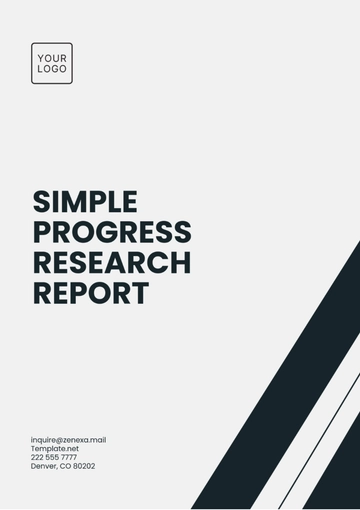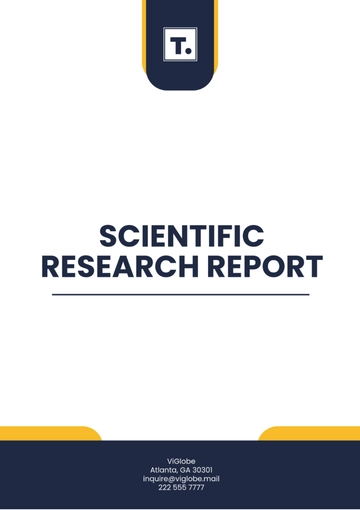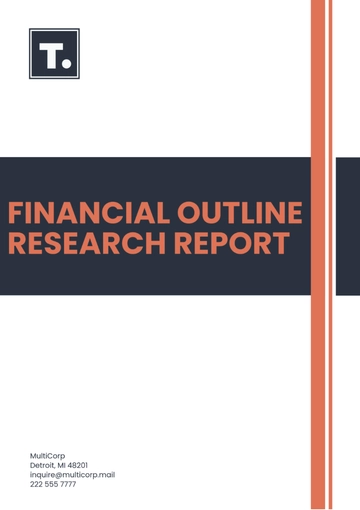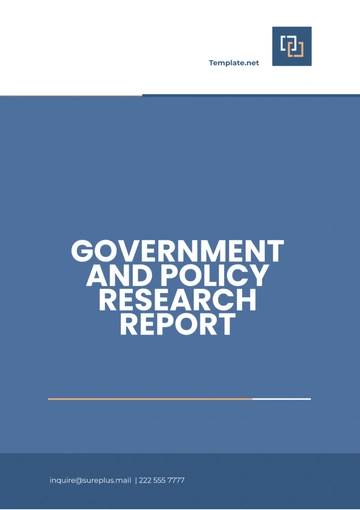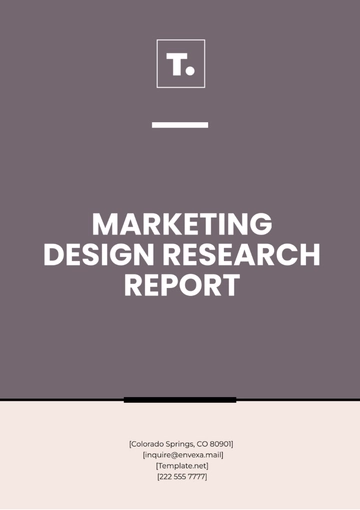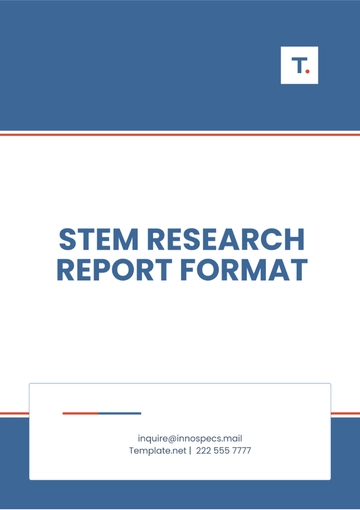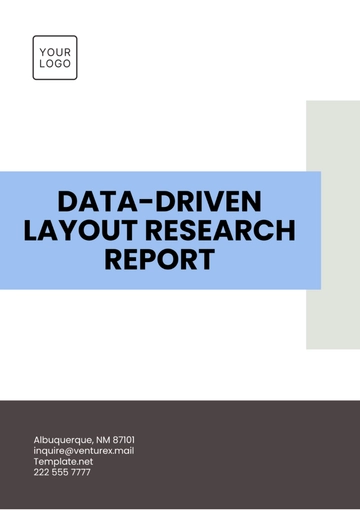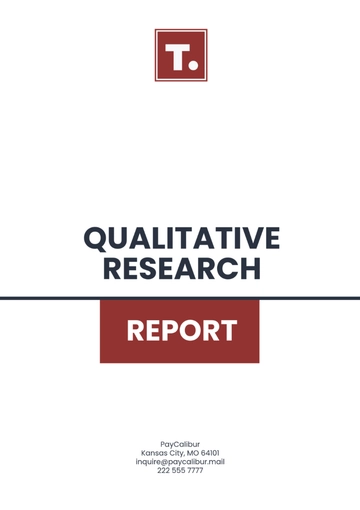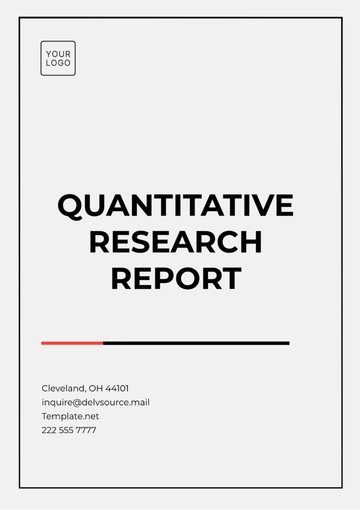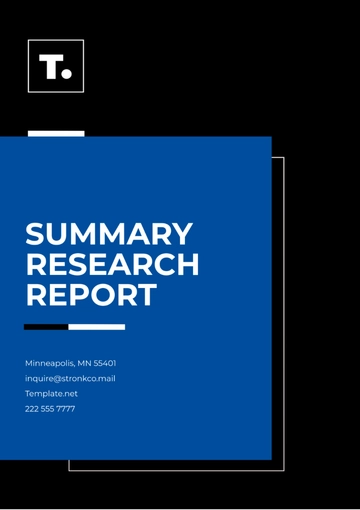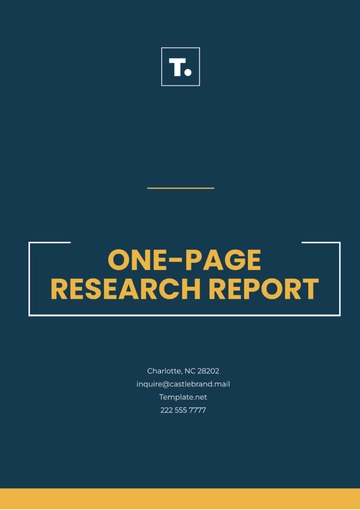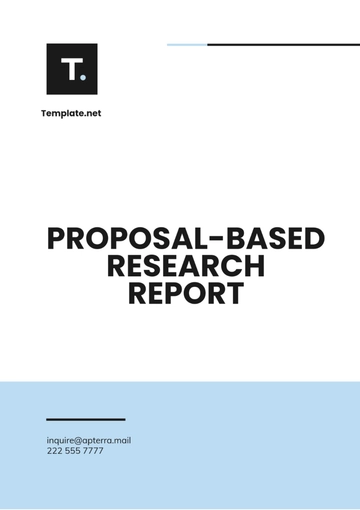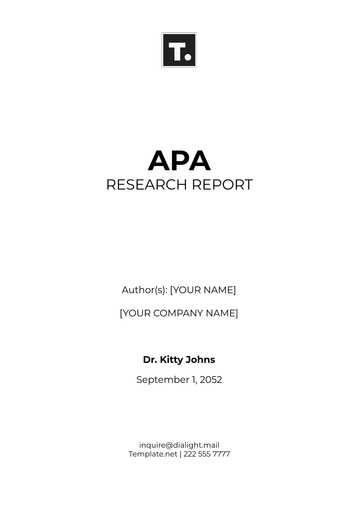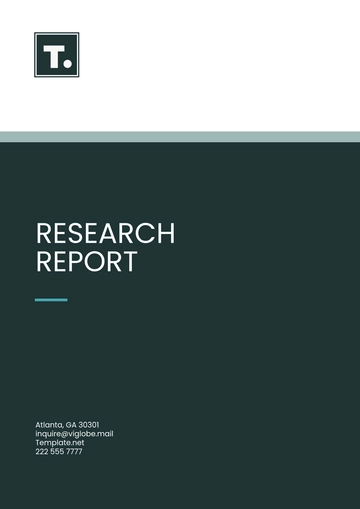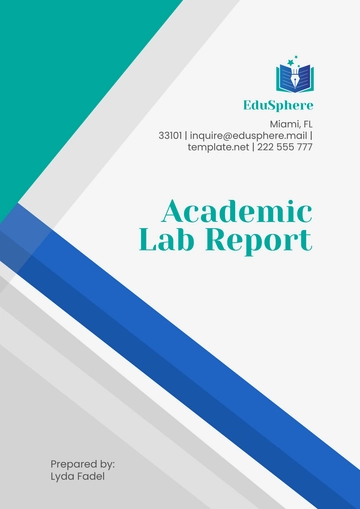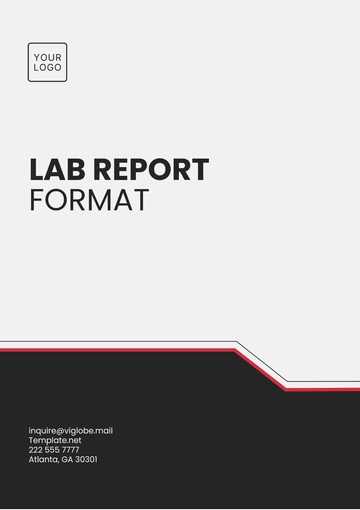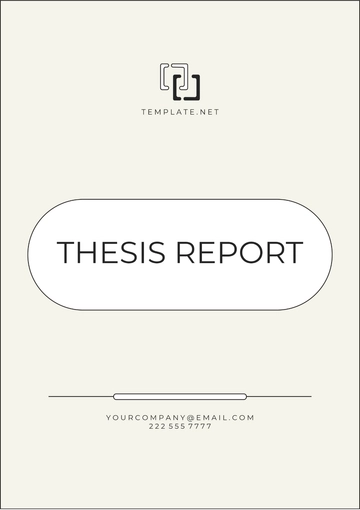Free College Research Progress Report
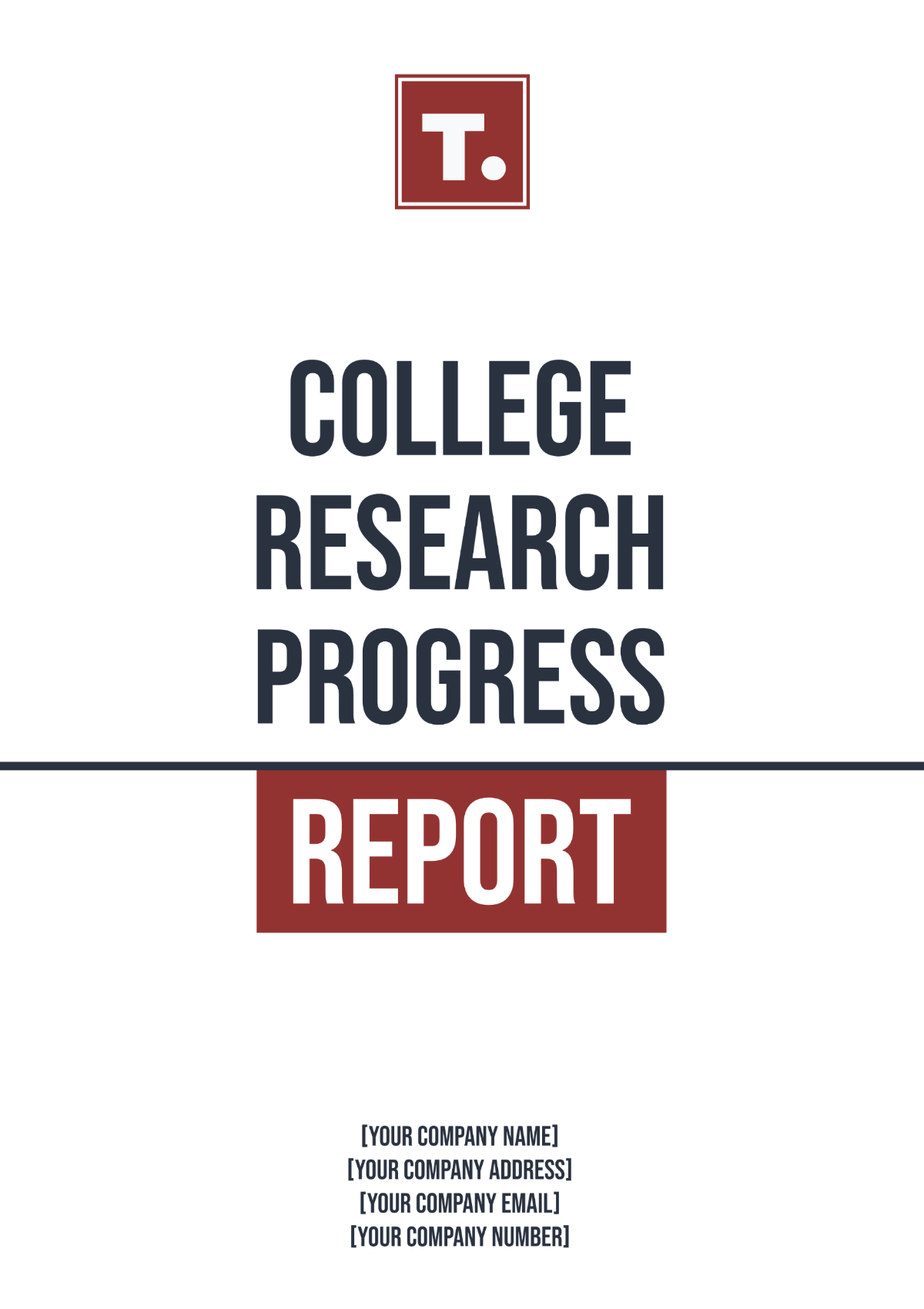
Research conducted by: [YOUR NAME]
Email address: [YOUR EMAIL]
I. Introduction
The College Research Progress Report provides an update on the ongoing research project titled "Impact of Artificial Intelligence on Human Decision Making". This report aims to evaluate the feasibility and progress of the research against predefined objectives and timelines.
A. Background
The research project commenced in January 2050 at the Department of Cognitive Science, University of New Mexico. It addresses the emerging field of artificial intelligence (AI) and its influence on human decision-making processes across various contexts. The integration of AI technologies into everyday decision-making scenarios has raised significant interest due to its potential implications for efficiency, accuracy, and cognitive load management.
B. Objectives
The primary objectives of the research include:
Objective | Description |
|---|---|
Assessing changes in decision-making patterns with AI integration | Investigating how individuals adapt their decision strategies with AI-generated recommendations. |
Analyzing cognitive responses to AI-generated recommendations | Examining psychological and cognitive factors influencing trust and acceptance of AI decisions. |
Identifying factors influencing trust and acceptance of AI in decision-making | Understanding socio-cultural, ethical, and technological factors shaping attitudes toward AI. |
II. Methodology
A. Research Design
The research employs a mixed-methods approach, combining quantitative experiments with qualitative interviews. Participants are recruited from diverse demographic backgrounds to ensure the study's findings are robust and applicable across various populations.
B. Data Collection
Data collection involves:
Data Collection Method | Description |
|---|---|
Experimental Trials | Participants engage in decision scenarios with and without AI assistance. |
Qualitative Interviews | Structured interviews post-experiment to gather insights into decision-making processes. |
III. Progress Update
A. Findings to Date
Preliminary findings indicate:
Finding | Description |
|---|---|
Varied reliance on AI recommendations | Participants demonstrate differential reliance on AI suggestions based on task complexity. |
Improved decision accuracy with AI integration | AI integration enhances decision accuracy, albeit with varying degrees of acceptance among users. |
B. Challenges
Challenges encountered include:
Challenge | Mitigation Strategy |
|---|---|
Participant Recruitment | Increased outreach and collaboration with community organizations to diversify participant pools. |
Technical Issues | Implemented robust testing protocols and backup systems to minimize disruptions during data collection. |
Data Analysis Complexity | Utilized advanced statistical methods and qualitative analysis techniques for comprehensive insights. |
C. Mitigation Strategies
To address these challenges:
Enhanced Recruitment Efforts: Increased outreach and collaboration with community organizations to diversify participant pools.
Improved Testing Protocols: Implemented robust testing protocols and backup systems to minimize disruptions during data collection.
Advanced Data Analysis: Utilized advanced statistical methods and qualitative analysis techniques to extract nuanced patterns and insights from the collected data.
IV. Future Steps
A. Timeline
The remaining activities include:
Activity | Timeline |
|---|---|
Data Analysis and Pattern Recognition | July 2050 - December 2050 |
Synthesizing Research Findings and Drafting Papers | January 2051 - March 2051 |
Presentation and Publication | April 2051 - June 2051 |
B. Anticipated Outcomes
Anticipated outcomes include:
Contributing Empirical Evidence: Providing empirical evidence on the impact of AI on human decision-making across diverse contexts.
Enhancing Understanding: Advancing understanding of human-AI interaction dynamics, including factors influencing trust, reliance, and acceptance of AI recommendations.
Informing AI Application Strategies: Informing future strategies for AI application in decision support systems, highlighting opportunities for improvement and ethical considerations.
V. Conclusion
The research project on "Impact of Artificial Intelligence on Human Decision Making" has made significant progress towards achieving its objectives. Despite encountering challenges, proactive strategies in participant recruitment, technical management, and data analysis have enhanced the rigor and relevance of the research outcomes. Moving forward, focused analysis and dissemination efforts will ensure comprehensive reporting and impactful contributions to the field of cognitive science and AI research.
- 100% Customizable, free editor
- Access 1 Million+ Templates, photo’s & graphics
- Download or share as a template
- Click and replace photos, graphics, text, backgrounds
- Resize, crop, AI write & more
- Access advanced editor
Maximize your academic efficiency with the College Research Progress Report Template from Template.net. This customizable and editable template is designed to streamline your reporting process effortlessly. Utilize the integrated AI Editor Tool to tailor your content precisely. Ideal for students and educators alike, it ensures clarity and professionalism in every report.
You may also like
- Sales Report
- Daily Report
- Project Report
- Business Report
- Weekly Report
- Incident Report
- Annual Report
- Report Layout
- Report Design
- Progress Report
- Marketing Report
- Company Report
- Monthly Report
- Audit Report
- Status Report
- School Report
- Reports Hr
- Management Report
- Project Status Report
- Handover Report
- Health And Safety Report
- Restaurant Report
- Construction Report
- Research Report
- Evaluation Report
- Investigation Report
- Employee Report
- Advertising Report
- Weekly Status Report
- Project Management Report
- Finance Report
- Service Report
- Technical Report
- Meeting Report
- Quarterly Report
- Inspection Report
- Medical Report
- Test Report
- Summary Report
- Inventory Report
- Valuation Report
- Operations Report
- Payroll Report
- Training Report
- Job Report
- Case Report
- Performance Report
- Board Report
- Internal Audit Report
- Student Report
- Monthly Management Report
- Small Business Report
- Accident Report
- Call Center Report
- Activity Report
- IT and Software Report
- Internship Report
- Visit Report
- Product Report
- Book Report
- Property Report
- Recruitment Report
- University Report
- Event Report
- SEO Report
- Conference Report
- Narrative Report
- Nursing Home Report
- Preschool Report
- Call Report
- Customer Report
- Employee Incident Report
- Accomplishment Report
- Social Media Report
- Work From Home Report
- Security Report
- Damage Report
- Quality Report
- Internal Report
- Nurse Report
- Real Estate Report
- Hotel Report
- Equipment Report
- Credit Report
- Field Report
- Non Profit Report
- Maintenance Report
- News Report
- Survey Report
- Executive Report
- Law Firm Report
- Advertising Agency Report
- Interior Design Report
- Travel Agency Report
- Stock Report
- Salon Report
- Bug Report
- Workplace Report
- Action Report
- Investor Report
- Cleaning Services Report
- Consulting Report
- Freelancer Report
- Site Visit Report
- Trip Report
- Classroom Observation Report
- Vehicle Report
- Final Report
- Software Report


